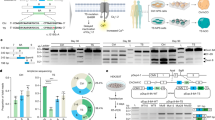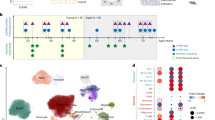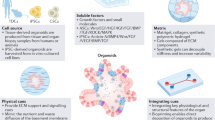Abstract
The transplantation of polymer encapsulated myoblasts genetically engineered to secrete erythropoietin (Epo) may obviate the need for repeated parenteral administration of recombinant Epo as a treatment for chronic renal failure, cancer or AIDS-associated anemia. To explore this possibility, the human and mouse Epo cDNAs under the control of the housekeeping mouse PGK-1 promoter were transfected into mouse C2C12 myoblasts, which can be terminally differentiated upon exposure to low serum-containing media. Pools releasing 150 IU human Epo per 106 cells per day and 390 IU mouse Epo per 106 cells per day were selected. Polyether-sulfone (PES) capsules loaded with approximately 200 000 transfected myoblasts from these pools were implanted on the dorsal flank of DBA/2J, C3H and C57BL/6 mice. With human Epo secreting capsules, only a transient increase in the hematocrit occurred in DBA/2J mice, whereas no significant response was detected in C3H or C57BL/6 mice. On the contrary, all mice implanted with capsules releasing mouse Epo increased their hematocrit over 85% as early as 7 days after implantation and sustained these levels for at least 80 days. All retrieved implants released Epo and contained well preserved myoblasts. Moreover most capsules were surrounded by a neovascularization. Mice transplanted with nonencapsulated C2C12 cells releasing mouse Epo showed only a transitory elevation of their hematocrit reflecting the poor engraftment of injected myoblasts. These results indicate that polymer encapsulation of genetically engineered myoblasts is a promising approach for the long-term delivery of bioactive molecules, allowing the resolution of the shortcomings of free myoblast transfer.
This is a preview of subscription content, access via your institution
Access options
Subscribe to this journal
Receive 12 print issues and online access
$259.00 per year
only $21.58 per issue
Buy this article
- Purchase on Springer Link
- Instant access to full article PDF
Prices may be subject to local taxes which are calculated during checkout
Similar content being viewed by others
Author information
Authors and Affiliations
Rights and permissions
About this article
Cite this article
Régulier, E., Schneider, B., Déglon, N. et al. Continuous delivery of human and mouse erythropoietin in mice by genetically engineered polymer encapsulated myoblasts. Gene Ther 5, 1014–1022 (1998). https://doi.org/10.1038/sj.gt.3300687
Received:
Accepted:
Published:
Issue Date:
DOI: https://doi.org/10.1038/sj.gt.3300687
Keywords
This article is cited by
-
A retrievable implant for the long-term encapsulation and survival of therapeutic xenogeneic cells
Nature Biomedical Engineering (2020)
-
Development of a gene therapy strategy to target hepatocellular carcinoma based inhibition of protein phosphatase 2A using the α-fetoprotein promoter enhancer and pgk promoter: an in vitro and in vivo study
BMC Cancer (2012)
-
Expression of Human Calcitonin by Microencapsulated Recombinant Myoblasts
Biotechnology Letters (2006)
-
Small-scale systems for in vivo drug delivery
Nature Biotechnology (2003)
-
A neovascularized organoid derived from retrovirally engineered bone marrow stroma leads to prolonged in vivo systemic delivery of erythropoietin in nonmyeloablated, immunocompetent mice
Gene Therapy (2003)



